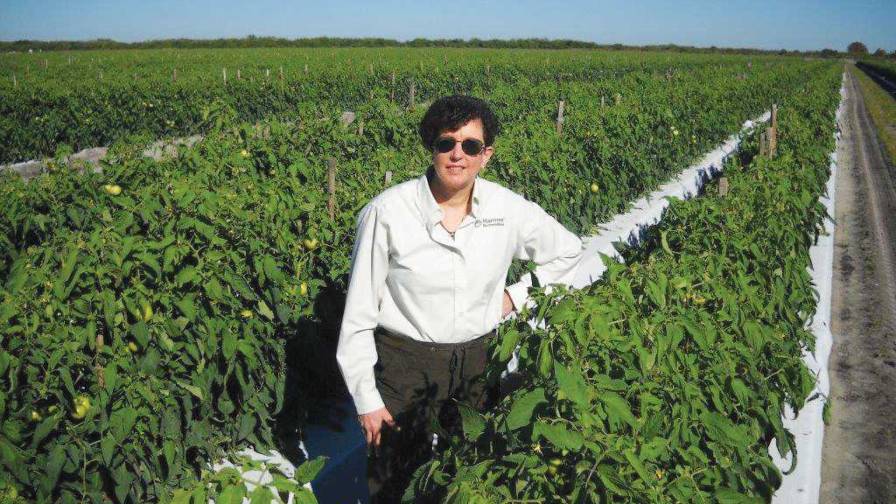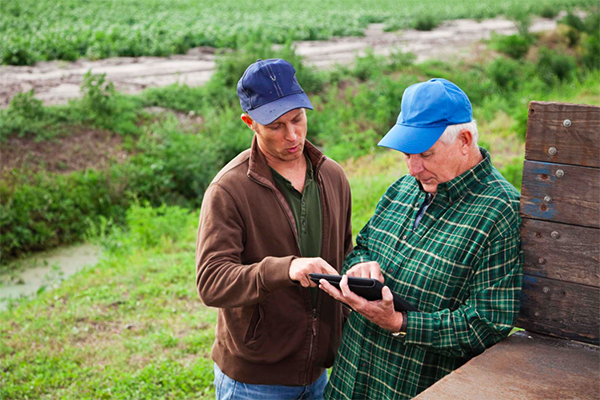Q&A With Pam Marrone On The World’s First All-Biological Seed Treatment
Marrone Bio Innovations Inc. and Israel-based Groundwork BioAg in February announced successful field trials of the world’s first all-biological comprehensive seed treatment for pest management. The treatments tested in corn and soybeans contained a mycorrhizal inoculant from Groundwork, called Rootella, as well as a bioinsecticide, a bionematicide, and a biofungicide from Marrone.
The two Biological Stack Seed Treatments (BSST) are comprised of two different insecticidal/nematicidal bacteria, one biostimulant/fungicidal bacterium and mycorrhizal fungi. The addition of Groundwork’s mycorrhizae appear to enhance these microbes. According to Marrone Bio Innovations CEO Pam Marrone, the project has potential for high impact in the seed treatment market in general across a broad range of crops, and in particular can meet an unaddressed need for the rapidly growing organic grain segment and regions where pest resistance is an issue.
Corn and soybeans were tested in four Midwestern U.S. states. In corn, the two bio-stacked treatments reduced corn rootworm populations and corn lodging, at least as well or better than the commercial chemical standard. Reduced corn rootworm damage generally correlated with increased yields. BSST Treatment 1 provided an average increase of 10.9 bushels (+5.8%), and BSST Treatment 2 an average increase of 12.5 bushels (+7.2%). Respectively, these improvements were 3 and 7.4 bushels higher than the commercial standard, which included chemical insecticide, nematicide and fungicides.
The companies plan to expand trials to include biotic stresses such as sudden death syndrome in soybean, as well as Fusarium stalk rot and Pythium in corn and soybeans.
CropLife® magazine sat down with Marrone to discuss the new product and partnership and what’s next.
CropLife: What drove the decision to create an all-biological seed treatment — is this geared toward organic crops or also conventional?
Marrone: Absolutely, the bigger market would be for conventional crops. The idea was to see if someone could actually do it, and show what is happening now with biologicals being stacked with chemicals — that’s also what Albaugh is doing with our microbe in that partnership. It’s a great strategy. I just wanted to see what would happen if we did an all-biological seed treatment to show you don’t actually need chemicals. Some of the chemicals are of concern for pollinators and others and have been subject to regulatory action, so we thought we would try it. We got funding from the Israel-United States Binational Industrial Research and Development (BIRD) Foundation for looking at it and, lo and behold, our first year of field trials showed very good results — that yes, we could actually have the same, or in some cases better, yield increases for corn rootworm control and nematode control than the leading bio-stacked or chemical product.
CROPLIFE: Will you target organic first, and when is the launch?
Marrone: I think we will do the markets in parallel. We certainly have an interest in the organic market, because there are no good, real seed treatments for these types of pests. It’s low-hanging fruit. It’s easiest for us to access that, because there’s a tremendous amount of competition in the conventional market, which is also why we partnered a different microbe with our Albaugh partnership for chemical and biological stacked seed treatments, because everybody and their brother is pursuing biostimulants and pesticidal applications in seed treatments. It’s a big market and there’s a lot of growth there. I do see the organic market will be the easier one to penetrate.
With having a BSST — a bio-stack — we thought we could differentiate and have something really different from everybody else, which we do. The low-hanging fruit will be organic, but there’s a lot of interest in the “sustainable” segment. They might be not be organic, but they want to try something different and look at things that are going to enhance their soil health — the microbiome and soil health initiatives. There’s a lot of talk about that in row crops as well as specialty crops. We hear that all the time. The days of just ruining soil health, and being totally ignorant of what microbes are happening and the effect of fertilizer and pesticides on the microbes, and having a low biodiversity in the soil — those days are seen as over.
For the launch, we are targeting 2018. Our microbe is already EPA-registered for seed treatment, but adding Groundwork’s Rootella will require a new product registration. We are trying to submit that this year, and are looking for plots to do larger demo trials, so we are in the hunt for that.







